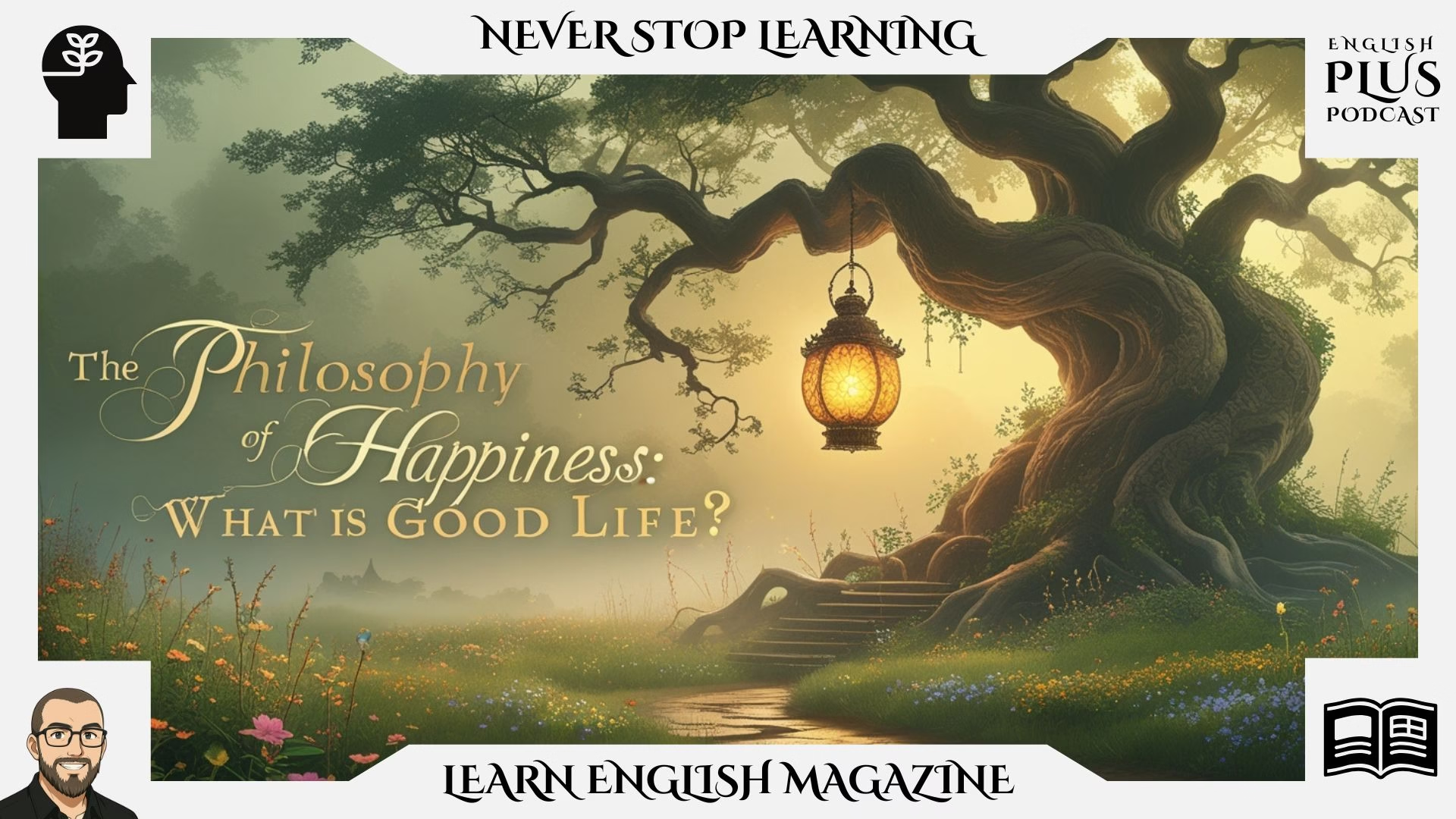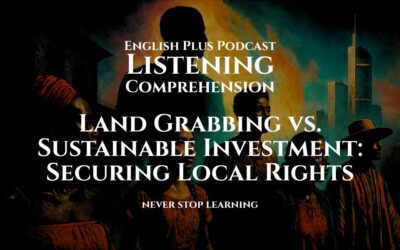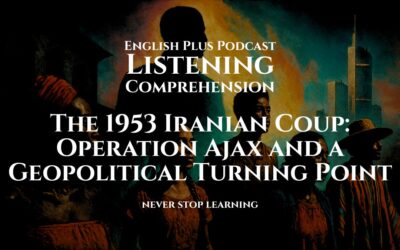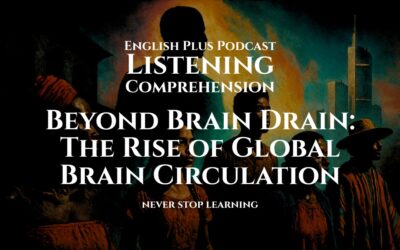Welcome! The listening section of international English exams like TOEFL, IELTS, and SAT can be challenging. It tests your ability to understand lectures, conversations, and different accents, often dealing with abstract concepts. But don’t worry, practice makes perfect! This session focuses on “The Philosophy of Happiness: What Is a Good Life?,” a thought-provoking topic that encourages deeper understanding, helping you hone the skills you need.
Effective Listening Tips for Your Exams:
- Grasp Abstract Concepts: Philosophy often deals with abstract ideas (happiness, virtue, meaning). Don’t expect simple definitions. Listen for explanations, examples, and contrasts that help clarify these concepts.
- Identify Different Philosophical Schools/Thinkers: Lectures on philosophy often introduce various thinkers or schools of thought (e.g., Stoics, Epicureans, Aristotle). Note the key ideas associated with each one. Listen for names and the theories attributed to them.
- Recognize Arguments and Counterarguments: Philosophical discourse involves presenting arguments and sometimes addressing counterarguments or alternative views. Listen for phrases like “Some argue that…”, “However, others believe…”, “A contrasting view holds…”.
- Distinguish Definitions: The definition of “happiness” itself is central. Pay close attention to how different philosophies define it (e.g., pleasure vs. flourishing vs. tranquility).
- Focus on Key Themes: Identify recurring themes like the role of pleasure, virtue, reason, external circumstances, meaning, and relationships in achieving a good life.
- Listen for Nuance: Philosophical discussions are rarely black and white. Pay attention to qualifying words (perhaps, might, often, tends to) that indicate nuanced positions rather than absolute claims.
- Practice with Diverse Materials: Listen to various topics and accents to improve your adaptability, especially with more abstract or academic content.
Now, prepare to listen to the lecture on the philosophy of happiness. Apply these tips as you listen.
Listening Transcript: Please do not read the transcript before you listen and take the quiz.
Good morning. Today, we venture into one of the oldest and most enduring questions in philosophy, a question that resonates deeply with our human experience: What constitutes a good life? And intrinsically linked to this, what is happiness, and how might we achieve it? Philosophers across cultures and millennia have grappled with these questions, offering diverse and often contrasting perspectives. Let’s explore some key ideas in this philosophical quest for well-being.
Perhaps the most fundamental distinction in the philosophical discussion of happiness is between two concepts often traced back to the ancient Greeks: Hedonia and Eudaimonia. Hedonia relates to happiness understood as pleasure, enjoyment, comfort, and the absence of pain. It’s about maximizing positive feelings and minimizing negative ones – essentially, feeling good. In contrast, Eudaimonia is a richer, more complex concept often translated as ‘flourishing,’ ‘living well,’ or ‘human flourishing.’ It’s not just about feeling good, but about being good and doing good. It emphasizes living a life of virtue, purpose, meaning, and realizing one’s potential.
Ancient Greek philosophers offered distinct paths towards a good life. The Epicureans, followers of Epicurus, pursued a form of hedonism, but not the unrestrained indulgence often associated with the term today. For Epicurus, the highest pleasure was ataraxia – a state of tranquility, freedom from fear, and absence of bodily pain. This was achieved through simple living, cultivating friendships, philosophical reflection, and limiting desires to those that are natural and necessary, thus avoiding the pain that comes from unfulfilled desires. It was a calm, contented state rather than ecstatic joy.
Aristotle, on the other hand, is the quintessential proponent of Eudaimonia. In his Nicomachean Ethics, he argued that the ultimate human good is Eudaimonia, achieved through living a life of virtue in accordance with reason. Virtue, for Aristotle, wasn’t just a feeling but an activity – consistently acting rightly, finding the ‘golden mean’ between extremes (e.g., courage as the mean between cowardice and recklessness). Happiness wasn’t a passive state but the result of actively exercising one’s highest human capacities, particularly rationality and moral virtue, over a complete life. External goods like health, wealth, and friends were seen as helpful, even necessary to some extent, but secondary to virtuous activity itself.
Another influential school, the Stoics, including figures like Epictetus and Marcus Aurelius, also emphasized virtue and reason but focused heavily on inner resilience and acceptance of what we cannot control. For the Stoics, happiness, or apatheia (freedom from disturbing passions), comes from focusing on our own judgments and actions – the only things truly within our power – and accepting external events with equanimity. Virtue is the sole good; external circumstances like wealth, health, or reputation are ‘indifferents,’ neither truly good nor bad in themselves. The good life is one lived in accordance with nature and reason, cultivating inner peace regardless of outer turmoil.
Moving beyond the ancient world, philosophical thought continued to evolve. During the Enlightenment, thinkers like Jeremy Bentham and John Stuart Mill developed Utilitarianism, a consequentialist ethical theory. They defined happiness primarily in hedonic terms – maximizing pleasure and minimizing pain – but extended it to the collective: the greatest good for the greatest number. Mill introduced a qualitative distinction, arguing that intellectual and moral pleasures (higher pleasures) are superior to purely physical ones (lower pleasures).
Existentialist philosophers, such as Jean-Paul Sartre and Albert Camus, writing in the wake of world wars and questioning traditional sources of meaning, presented a different perspective. They emphasized radical freedom, individual responsibility, and the creation of meaning in a seemingly meaningless universe. Happiness wasn’t a pre-defined state to be found but something created through authentic choices and commitments, even in the face of absurdity and suffering. Finding meaning, even in struggle, was key.
In contemporary thought, the dialogue continues, often informed by modern psychology, particularly the field of positive psychology founded by Martin Seligman. Positive psychology empirically studies well-being, identifying factors like positive emotions (hedonic aspect), engagement (being absorbed in activities), positive relationships, meaning (serving something larger than oneself), and accomplishment (PERMA model). This approach often bridges the gap between hedonic and eudaimonic traditions, acknowledging the importance of both feeling good and functioning well.
However, the pursuit of happiness is not without its paradoxes. Actively chasing happiness as a goal can sometimes be counterproductive, leading to frustration or disappointment. Some philosophers and psychologists suggest happiness is often a byproduct of engaging in meaningful activities, cultivating virtues, and fostering strong social connections, rather than a direct target. Furthermore, the very definition of a ‘good life’ can be culturally relative, with different societies emphasizing individual achievement versus collective harmony, or material success versus spiritual fulfillment.
Challenges also arise from the human condition itself – our vulnerability to suffering, loss, and mortality. Can a life marked by significant hardship still be considered a ‘good life’? Many eudaimonic perspectives would argue yes, if one maintains virtue, resilience, and meaning even amidst adversity. It suggests that well-being is not solely dependent on external fortune but also on our internal resources and responses.
In conclusion, the philosophical exploration of happiness and the good life reveals a complex tapestry of ideas. From the hedonic pursuit of pleasure and tranquility to the eudaimonic emphasis on virtue, meaning, and flourishing, and the existentialist focus on creating value, these perspectives offer profound insights. There may not be a single, universally applicable formula, but the ongoing inquiry encourages us to reflect on our own values, choices, and what it truly means for us, individually and collectively, to live well.
Keywords and Phrases
- Enduring: Definition: Lasting over a long period; durable. Usage in script: “…one of the oldest and most enduring questions in philosophy…” – Meaning the question has lasted and remained relevant for a very long time.
- Intrinsically: Definition: In an essential or natural way; fundamentally. Usage in script: “…and intrinsically linked to this, what is happiness…” – Meaning the question of happiness is naturally and essentially connected to the question of the good life.
- Grappled with: Definition: To struggle or wrestle with a difficult problem or subject. Usage in script: “Philosophers… have grappled with these questions…” – Meaning they have struggled intellectually to understand and answer these complex questions.
- Hedonia / Eudaimonia: Definition: Two distinct concepts of well-being from Greek philosophy. Hedonia refers to pleasure, positive feelings, and absence of pain. Eudaimonia refers to human flourishing, living virtuously, and fulfilling one’s potential. Usage in script: Used as key terms to contrast different philosophical approaches to happiness.
- Quintessential: Definition: Representing the most perfect or typical example of a quality or class. Usage in script: “Aristotle, on the other hand, is the quintessential proponent of Eudaimonia.” – Meaning Aristotle is the most typical or perfect example of someone who advocates for the Eudaimonia view.
- Equanimity: Definition: Mental calmness, composure, and evenness of temper, especially in a difficult situation. Usage in script: “…accepting external events with equanimity.” – Describing the Stoic ideal of remaining calm regardless of circumstances.
- Indifferents: Definition: In Stoic philosophy, things that are external to one’s virtue and therefore neither good nor bad in themselves (e.g., health, wealth, reputation). Usage in script: “…external circumstances like wealth, health, or reputation are ‘indifferents’…” – Explaining a key Stoic concept.
- Consequentialist: Definition: Relating to ethical theories that judge whether something is right by what its consequences are. Usage in script: “…Utilitarianism, a consequentialist ethical theory.” – Categorizing Utilitarianism based on its focus on outcomes (pleasure/pain).
- Absurdity: Definition: In existentialist philosophy, the conflict between the human tendency to seek inherent value and meaning in life and the human inability to find any in a purposeless, meaningless universe. Usage in script: “…even in the face of absurdity and suffering.” – Referring to the existentialist confrontation with a perceived lack of inherent meaning.
- Counterproductive: Definition: Having the opposite of the desired effect. Usage in script: “Actively chasing happiness… can sometimes be counterproductive…” – Meaning trying too hard to be happy might actually make you less happy.
- Byproduct: Definition: An incidental or secondary product or result. Usage in script: “…happiness is often a byproduct of engaging in meaningful activities…” – Meaning happiness often arises indirectly as a result of doing other valuable things.
- Adversity: Definition: Difficulties; misfortune. Usage in script: “…if one maintains virtue, resilience, and meaning even amidst adversity.” – Referring to maintaining well-being despite facing hard times.











0 Comments